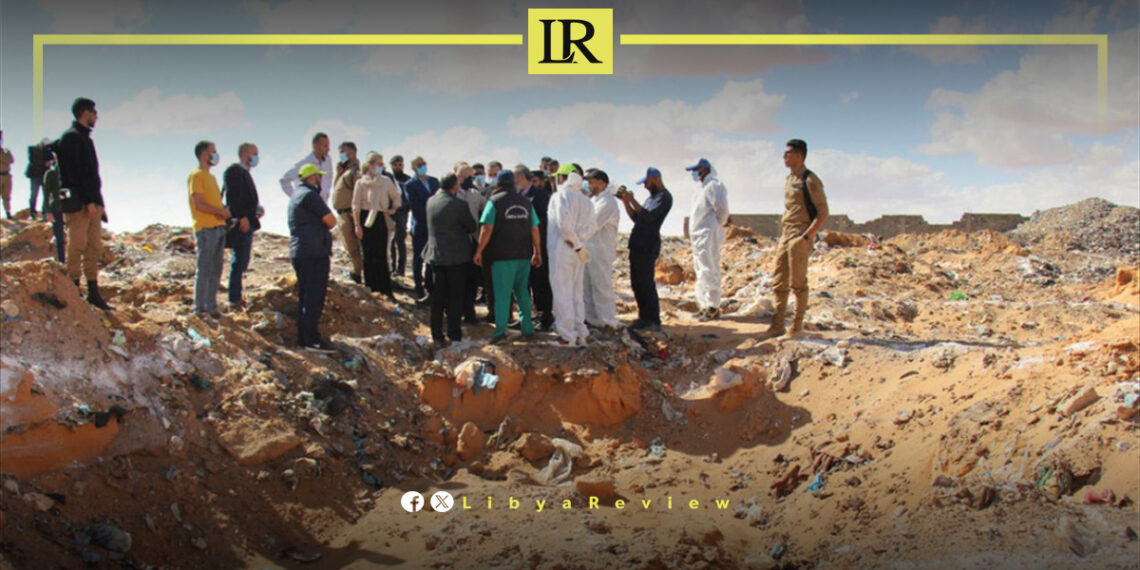On Tuesday, ICC Prosecutor Karim Khan called for international cooperation to ensure accountability for war crimes committed in Libya.
Speaking to the United Nations Security Council from Tripoli, Khan emphasized the importance of executing arrest warrants for six individuals linked to the Al Kaniyat militia, accused of committing atrocity crimes in the town of Tarhuna.
These crimes include murder, torture, sexual violence, and rape, with hundreds of bodies discovered in mass graves following the militia’s ousting in June 2020.
The suspects—Abdurahem Khalefa Abdurahem Elshgagi, Makhlouf Makhlouf Arhoumah Doumah, Nasser Muhammad Muftah Daou, Mohamed Mohamed Al Salheen Salmi, Abdelbari Ayyad Ramadan Al Shaqaqi, and Fathi Faraj Mohamed Salim Al Zinkal—were key figures in the militia, which controlled Tarhuna from at least 2015 to 2020.
Arrest warrants for these individuals were unsealed last month, and Khan called on State Parties to the ICC’s Rome Statute, non-State Parties, and the UN Security Council to assist in apprehending the suspects.
ICC Prosecutor shared his conversations with victims’ families in Tarhuna, describing their grief and resilience. He highlighted their determination for justice and accountability, not only for their loved ones but for Libya’s broader path to stability.
The ICC has made significant progress in investigations into crimes committed in Libya between 2014 and 2020, particularly those linked to detention facilities.
Khan confirmed that further arrest warrants are forthcoming, with some applications kept confidential to improve the chances of apprehension. He also stressed the importance of collaboration with Libyan authorities, citing productive discussions with the Attorney General and the establishment of a mechanism to coordinate prosecutions and investigations.
The ICC’s engagement with civil society organizations has intensified, with over 70 Libyan groups consulted to align efforts with victims’ needs and expectations. Khan emphasized the importance of keeping victims at the heart of judicial processes and outlined the roadmap for completing the investigative phase.
While challenges remain, he expressed optimism about finding solutions to address the long-standing issues that have plagued Libya since the 2011 revolution.
The ICC’s jurisdiction in Libya originates from a 2011 UN Security Council resolution, which referred the situation in the country to the Court. Since then, the ICC has been tasked with investigating and prosecuting the most serious crimes committed during Libya’s conflict.
Despite the complexities, Khan reaffirmed the ICC’s commitment to ensuring justice for victims and holding perpetrators accountable. He concluded with a call for global solidarity, highlighting that international cooperation is vital to addressing Libya’s enduring crisis and advancing peace and accountability.


